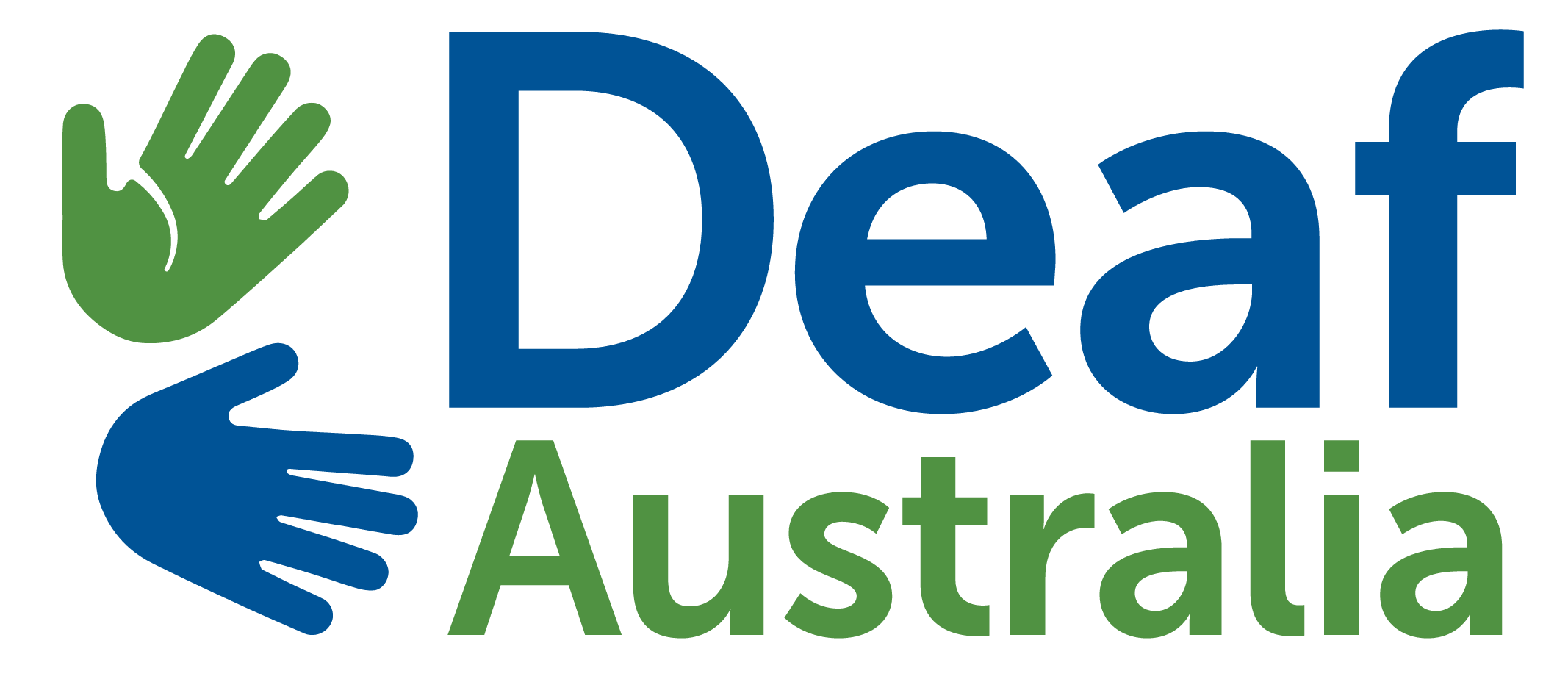No products in the cart.
Deaf Australia was excited to partner up with Deafness Forum, this week, to interview Young Australian of the Year 2015 winner Drisana Levitzke-Gray about her award, her life, and her views on deaf advocacy and the community.
[divider style=”hr-dotted”]Can you describe how you felt, right at the moment when it was announced that you won? What happened after the presentation?
There are no words to adequately sum up the feeling at that exact moment when they announced me as the recipient of the Young Australian of the Year Award. It was mixture of happiness, excitement, shock and an overwhelming sense of honour. Once we received our awards, we were rushed out back towards the Parliament House where there was a flurry of activity, with media and print journalists waiting to take photos and conduct interviews. I did an interview with Sky News, then a radio interview with ABC. After about two hours, all the award recipients managed to return to family and friends where we could share our excitement with our loved ones, who had lots to say to us!
There must have been many amazing people you met at the Australia Day awards ceremony, did you have a chance to share with them Auslan and promote the national language of the Australian Deaf community?
I did indeed meet a number of lovely people during the Australia Day awards ceremony and throughout the course of the weekend. We had an official morning tea with Prime Minister, Tony Abbott, and dinner with the Governor General as part of the functions over the weekend and I was able to get to know some of the impressive nominees a little better – it was an amazing group of people drawn from different walks of life and experience, all contributing to change for the better in Australia.
I managed to teach some well-known people a bit of Auslan, including Adam Goodes, AFL player for Sydney Swans (and previous Australian of the Year); Deborra-Lee Furness, adoption advocate, actress and wife of Hugh Jackman; Dr Tim Soutphommasane, Race Discrimination Commissioner, and so on. There was never a moment when I wasn’t promoting and sharing our very wonderful and beautiful language, Auslan, with all the guests and finalists of the Australia Day Awards.
How busy were you after winning the awards? Australian’s saw you on television a few times? Did you have to travel to each studio or were you able to be interviewed from one location? Did they provide any interpreters to ensure that your message gets across to their audience?
Extremely busy! I could never have anticipated exactly how busy I was to become. I was given media advice and tips from the Australia Day Council representative whilst at the Awards about the fact that things were going to take off, and that I have a right to say no to some projects/requests. There is no funding attached to the award at all, so it’s not that I receive any bursary to cover my costs to take on additional work or to travel etc – it’s all done voluntarily unless an organisation offers a fee or to cover travel etc. It wasn’t till the first week had passed that I started to worry, “oh my gosh, is this what the rest of the year will be like?!” in terms of how busy it was and just how much attention the awards had drawn. Very exciting in terms of raising the profile of Auslan and of the Deaf community, but also a little overwhelming for a 21 year old juggling part time work and studies and living in Western Australia (not ideal for travelling to the east coast!).
The morning after the Awards, all the award recipients had about 5 interviews with different media companies (7, 9, 10, ABC, Sky News) from 5am to 8am. So I was up at about 4am to drive over to the Parliament House where all the studios were – these are studios specifically for news regarding the parliament and government. I had 3 interpreters with me that whole weekend so everything worked out just fine and the interpreters did a great job ensuring my message came across.
For the other interviews since the awards weekend (magazines, newspapers, Sunrise etc), I requested the studios organise and cover the cost of compatible interpreters, and that has all worked out well so far. They all instantly recognised the importance of having a suitably skilled Auslan interpreter if they wanted to interview me, and access to date has not been an issue. I’ve had a couple of trips since to the east coast for awards-related commitments and media obligations, but I have also done some of my interviews from Perth.
What was the best moment for you in winning the Young Australian of the Year?
The recognition, publicity and the media/Australia’s interest and attention regarding Auslan and the Deaf community. It’s a long time since we had a national platform of this nature to use and to promote our beautiful language as well as to raise the profile and status of the Deaf community. The whole Awards weekend and presentation was an amazing experience personally, but nothing can beat the fact that this was really a win for the wider Deaf community in terms of raising awareness of the concept of “Deaf gain” not “hearing loss”, and conveying the message to wider society that it’s OK to be Deaf!
What message do you hope to promote as Young Australian of the Year in 2015?
I am promoting the beauty of Auslan, how it is a language that belongs to Australia, and is used by a community of people that can be considered a linguistic minority. While promoting and encouraging Australians to celebrate and embrace Auslan, I want to also highlight the harsh truth that Deaf children suffer when they are denied their right to have full access to a language where they can communicate and express themselves completely. Linguistic impoverishment in the early years for Deaf children when deprived of access to a visual language may lead to them experiencing mental health issues, isolation, and low self-esteem, not to mention poor educational outcomes, under-employment and unemployment.
We must take action to improve access to Auslan for Deaf children in infancy, support hearing families in their efforts to learn it, expect educational institutions to embrace Auslan as a viable first language for Deaf children, and promote it as a valuable second language for LOTE (Language other than English) teaching in schools to hearing children too, to encourage a more accessible and accepting society in general. Auslan as a LOTE programs in schools also allow Deaf children to formally study Auslan in the same way hearing children study English. In addition, we need more funding for research on Auslan, and a greater investment in resources and opportunities to learn Auslan (teacher training, materials etc). Deaf people should also be able to access messages and information in the wider community in Auslan, via for example, Auslan interpreted broadcasts of emergency updates during times of crisis, or Auslan translations being available on websites, particularly for government services/agencies etc.
What things have you learnt from this experience that we could benefit from to create positive exposure for Deaf and hard of hearing Australians, and their families?
We all need to work together for the common good, the greater cause. We need the government to take responsibility for the well-being of our Deaf children. We need constant positive exposure about Auslan, and about the Deaf community. We need many more Deaf role models out there, meeting the parents of newly diagnosed babies and families of Deaf children, so they know that their child too can aspire to be whatever they dream to be.
We need reliable funding for programs such as the Auslan for families, a project which is already developed and run by the WA Deaf Society but does not have recurrent funding from the government. Such a program should become national, and available for every family to access. Parents can access Better Start government funding of $12,000 per child, yet only half of that sum can be used for parents to access Auslan programs. The full amount however is able to be used by parents for “therapy” services, including speech therapy, if they so wish. Why does the allocation discriminate against access to Auslan programs? We need to change the attitude and mentality of the government and of Australian society and to remove the stigma associated with using sign language. To do this, we all need to work together – united we stand, divided we fall.
From your experience as a Young Australian of the Year to date, what do you think are the top three issues affecting the deaf and hard of hearing community today?
[divider style=”hr-dotted”] From: David Brady (Chair of Deafness Forum of Australia) and Todd Wright (President of Deaf Australia)My response is skewed to an extent based on my particular platform and there are many other issues I could have raised, however my key concerns are:-
- The right of Deaf children to have access to Auslan from birth (in the home, in school etc).
- Appropriate and recurrent funding is required for Deaf service providers and organisations.
- Access to emergency broadcasts on TV via Auslan (whether natural disasters or man made such as the Sydney Siege) and Auslan translations on relevant websites.



